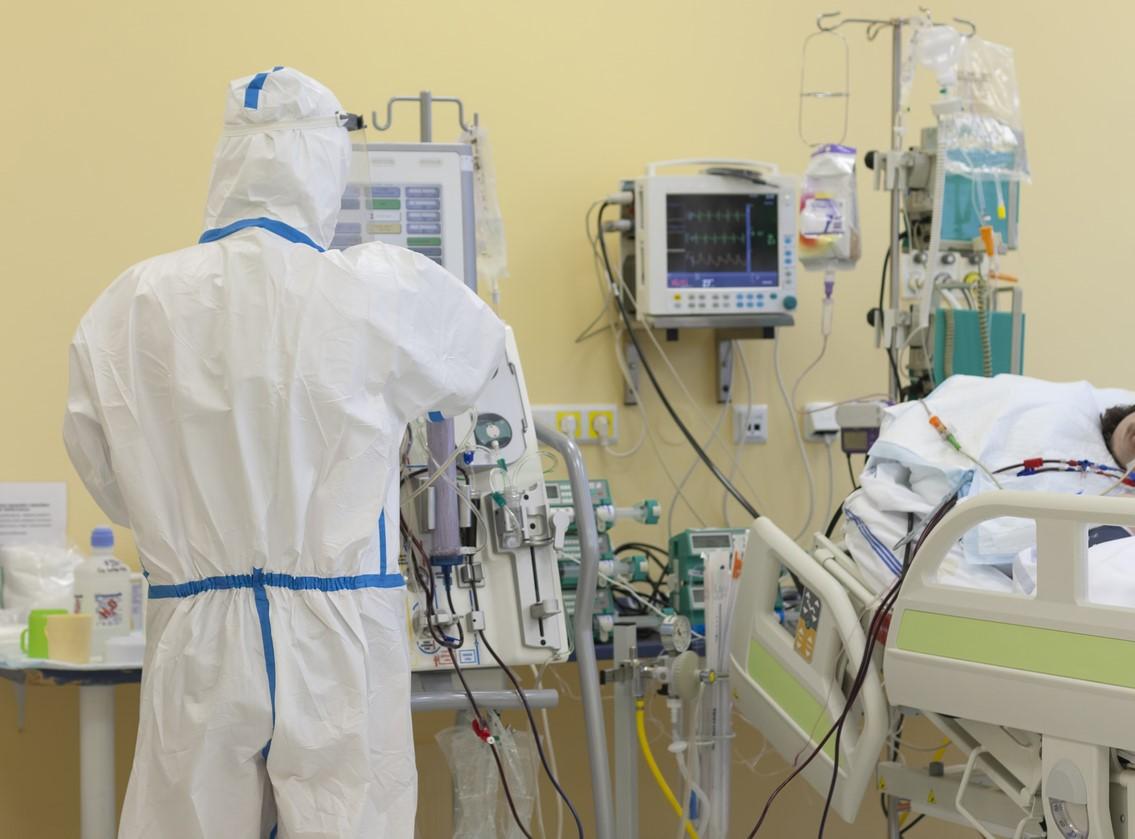Compared with patients with seasonal flu, hospitalized COVID-19 patients face an increased need for ventilation and intensive care, longer hospital stays, more complications, and nearly five times the risk of death, according to a US study published yesterday in BMJ.
The study, led by researchers from the VA Saint Louis Health Care System, mined the US Department of Veterans Affairs medical records database to compare the outcomes of 3,641 COVID-19 patients hospitalized from Feb 1 to Jun 17 with those of 12,676 hospitalized with the flu from 2017 to 2019.
Quadruple risk of ventilator use
Compared with the flu, COVID-19 was tied to a higher risk of death (hazard ratio [HR], 4.97), the need for mechanical ventilation (HR, 4.01) and intensive care (HR, 2.41), and needing an extra 3 days of hospitalization.
Differences in death rates due to COVID-19 versus flu were most evident in people older than 75 years who had chronic kidney disease or dementia and black patients with chronic kidney disease, diabetes, or obesity.
While both viruses affect the lungs, the study showed that COVID-19 can also harm other organs. The novel coronavirus was also linked to a higher risk of acute kidney injury (odds ratio [OR], 1.52), new need for dialysis (OR, 4.11) or insulin (OR, 1.86), severe septic shock (OR, 4.04), and the need for vasopressors to raise abnormally low blood pressure (OR, 3.95).
Coauthor Ziyad Al-Aly, MD, of the VA Saint Louis Health Care System, said in a Washington University news release that one of the most surprising findings of the study was the large increase in the risk of needing to initiate dialysis in COVID-19 patients.
"These patients didn't have diabetes until they got COVID-19," he said. "Then their blood sugar spiked, and they needed huge doses of insulin. Is the diabetes reversible, or will it require long-term management? Will it be Type 1 or Type 2 diabetes? We just don't know because COVID-19 barely existed a year ago."
Unknown long-term complications
COVID-19 patients were also at elevated risk for pulmonary embolism (OR, 1.50), deep-vein thrombosis (OR, 1.50), stroke (OR, 1.62), acute inflammation of the heart muscle (OR, 7.82), heart rhythm abnormalities and sudden cardiac death (OR, 1.76), elevated troponin levels (indicating heart attack or damage; OR, 1.75), rhabdomyolysis (rapid muscle breakdown; OR, 1.84), and elevated levels of aspartate aminotransferase (OR, 3.16) and alanine aminotransferase (OR, 2.65), both of which indicate liver damage.
"Among people admitted to hospital, compared with seasonal influenza, COVID-19 was associated with increased risk of extrapulmonary organ dysfunction, death, and increased health resource use," the authors wrote in the study. "The findings may inform the global discussion about the comparative risks of COVID-19 and seasonal influenza and may help the ongoing effort to manage the covid-19 global pandemic."
Noting coronavirus "long-haulers," or coronavirus patients who have lingering symptoms long after they recover from their infection, Al-Aly said in the release that no one knows what the long-term complications of COVID-19 will be.
"Even for people who are fortunate to survive the acute COVID-19 illness, they may be forever scarred by the lasting impact of its long-term clinical complications," he said. "The more we understand, the better we can benchmark health-care resources and treat patients."



















